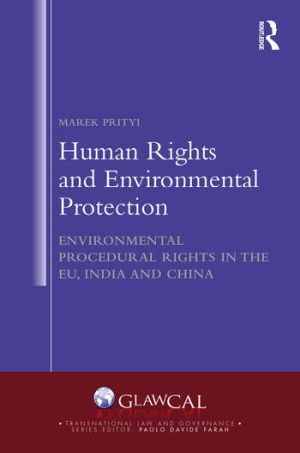
This book explores the complex relationship between human rights and environmental protection. It analyses the concept of environmental procedural rights from a comparative perspective in the European Union, India, and China.
Arguing the need to apply a holistic approach which acknowledges the interlinkages between democracy, environmental protection, and climate change, it examines both theoretical and practical dimensions of the topic, with case studies drawn from empirical research. The work highlights the important role of environmental procedural rights at the intersection of environmental law and human rights, emphasising the need for effective channels of communication between citizens and public authorities. The study calls for the taking into account of non-binding recommendations, such as the Maastricht Recommendations on Promoting Effective Public Participation in Environmental Matters for developing public participation procedures in a manner that allows authorities to tailor these to the needs and situations of marginalized people.
The book will be a valuable resource for academics, researchers and policy makers working in the areas of Environmental Law, International Human Rights Law and Transnational Law and Governance.